What facts should everyone know about Africa?
Africa, often called the cradle of civilisation, is a continent that never ceases to amaze. With a tapestry of landscapes, cultures, and histories, it’s a place where every fact opens the door to a deeper understanding and appreciation. Here are some fundamental facts about Africa that everyone should know.
Understanding the geography of the African continent
Starting with its immense size and diversity, it is essential when discussing the African continent. Covering over 30 million square kilometres, Africa is the second largest continent in the world, accounting for about 20% of the Earth’s land area. It’s not just about its size; Africa’s geographical features are as diverse as its cultures. From the sweeping Sahara Desert, the largest hot desert in the world, to the lush expanses of the Congo Rainforest, Africa’s landscapes are vast and varied.
Major African countries: Nigeria, Kenya, and Sudan
In the realm of African countries, Nigeria stands out as the most populous country in Africa, a melting pot of languages and cultures. Renowned for its breathtaking landscapes and wildlife, Kenya is a beacon of tourism and ecological diversity. With its rich history of ancient civilisations, Sudan offers a glimpse into Africa’s past and its evolving present.
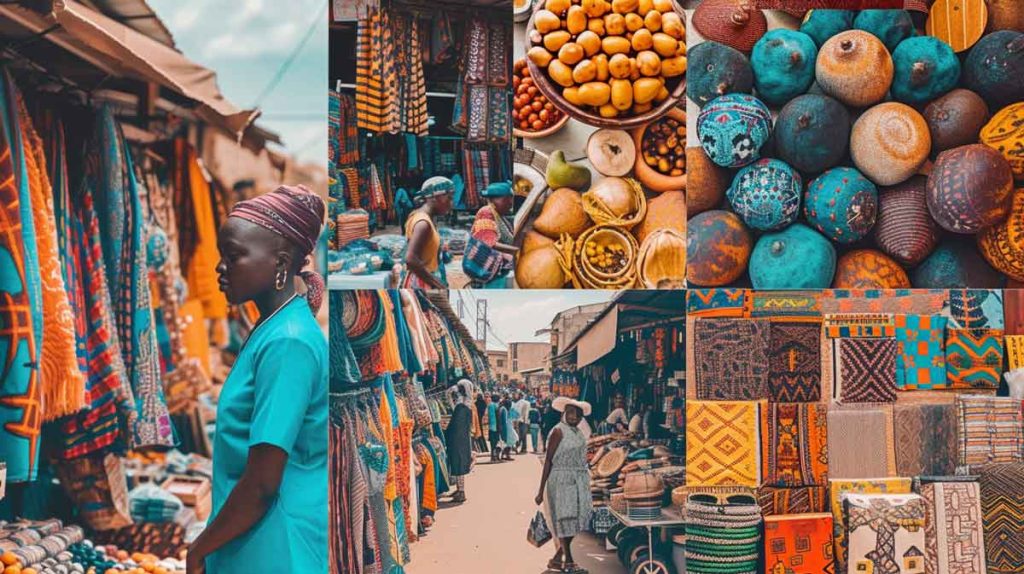
The diversity of Africa: 54 countries, different languages, and cultures
Africa’s true essence lies in its diversity. With 54 countries, the continent is a mosaic of languages and cultures. This diversity is a testament to Africa’s rich history and the resilience of its people. Each African country, from the island nation of Madagascar to the coastal beauty of Seychelles, contributes to the continent’s unique character.
Second Largest Continent: Africa’s place in the world
As the second largest continent, Africa’s impact on the world is significant and far-reaching. It’s not just about landmass; Africa’s strategic position has been a focal point throughout history. The continent’s resources, from minerals to its youthful population, shape global dynamics.
Important fun facts about Africa
Among the essential fun facts about Africa, did you know that the continent is the only one to stretch from the northern temperate zone to the southern temperate zone? Or that Africa is home to the world’s largest living land animal, the African Elephant? These facts highlight Africa’s geographical and biological diversity and its uniqueness on the global stage.
What’s unique about Africa’s population?
Population insight: Over a billion people live in Africa
Africa’s population is as diverse as its geography. Home to over a billion people, it represents about 16% of the world’s population. This number is even more remarkable considering the rapid growth rate; the continent’s population is expected to double by 2050. Such growth presents challenges and opportunities, particularly in development and resource management.
Africa’s growing population: What you need to know
This burgeoning population is predominantly young, making Africa the youngest continent globally. With a median age of 19.7 years, the youthfulness of Africa is a defining characteristic. This demographic dividend could be Africa’s greatest asset, offering immense economic growth and innovation potential.
Distinct cultures and traditions of Africans
The cultural diversity across the African continent is unparalleled. From the ancient practices of the San people in Southern Africa to the vibrant music and dance of West African nations, the variety of traditions enriches the continent. These cultures, each with unique customs and rituals, contribute to the global cultural tapestry.
Language diversity: Africa’s multilingualism
Language is a significant aspect of Africa’s cultural richness. With over 2,000 languages spoken, Africa is the most linguistically diverse continent. This multilingualism reflects the complex histories and interactions among its peoples. From Swahili in East Africa to Amharic in Ethiopia, languages in Africa carry the stories and wisdom of its people.
The youthfulness of Africa: A continent of young people

Africa’s youthful population is not just a demographic fact; it’s a dynamic force. This young generation is tech-savvy, innovative, and ready to tackle the continent’s challenges while shaping its future. Their energy and creativity are already driving changes in technology, agriculture, and entrepreneurship across Africa.
What are the main geographic features of Africa?
Africa’s largest desert: Unveiling the Sahara Desert
The Sahara Desert, synonymous with extreme landscapes and vast, arid expanses, is the largest hot desert in the world. The Sahara covers 9 million square kilometres across much of North Africa. This desert is not just dunes; it features mountains, rocky plateaus, and occasional oases.
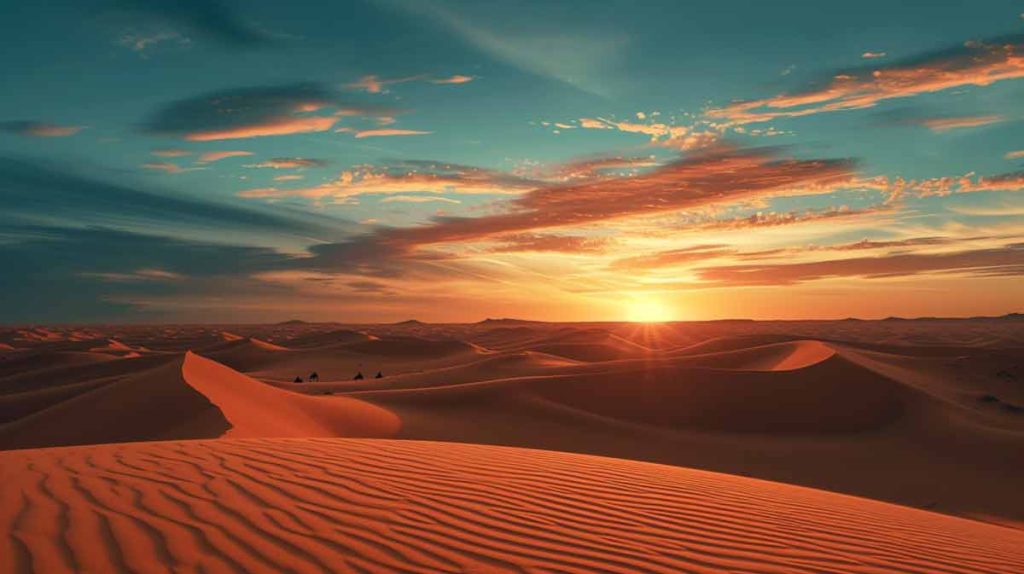
The Nile – The longest river flowing through the continent
The revered and vital Nile holds the title of the longest river in the world, traversing about 6,650 km across northeastern Africa. It’s more than a water source; it’s a lifeline for civilizations, agriculture, and ecosystems along its path. The Nile’s journey through countries like Egypt and Sudan has shaped historical narratives for millennia.
Exploring Africa’s coastlines: Encounter with the Indian Ocean
Africa’s over 26,000 km coastline tells a story of diversity and beauty. The eastern coast, notably along the Indian Ocean, has pristine beaches, coral reefs, and bustling ports. These coastal regions are crucial to the continent’s economy, culture, and environment.
Southern Africa’s unique geographic characteristics
Southern Africa presents a distinct geographic profile, from the Kalahari Desert’s sands to the lush landscapes of the Cape Floristic Region. This region is also home to significant natural wonders like Victoria Falls, a UNESCO World Heritage Site and the largest waterfall in Africa.
Discovering the second-largest rainforest in the world
The Congo Rainforest, second only to the Amazon, is a marvel of biodiversity. Spanning across countries like the Democratic Republic of the Congo, this rainforest is a haven for countless species and is critical in regulating the global climate.
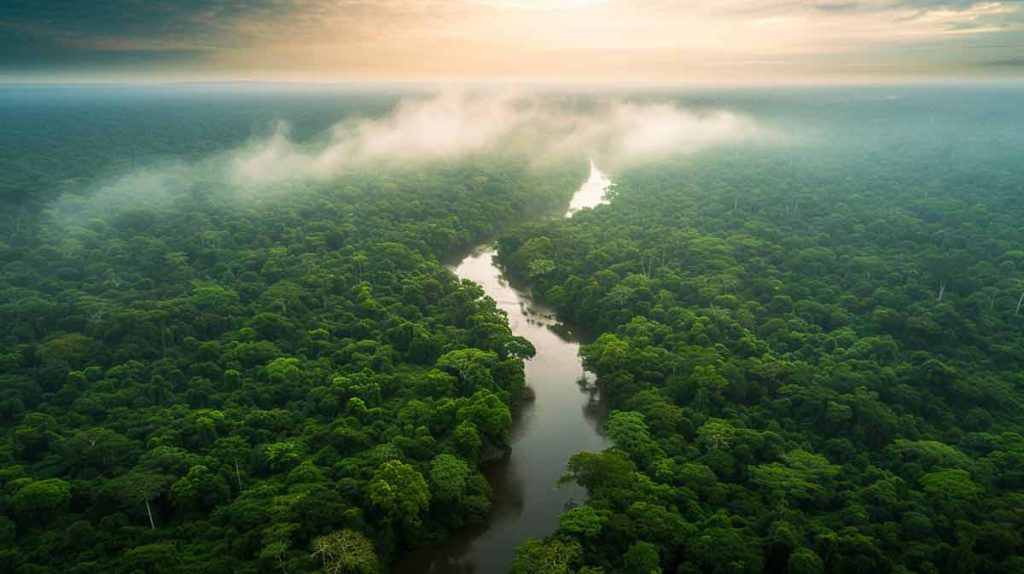
What interesting wildlife facts are there about Africa?
Africa’s rich biodiversity: A haven for unique species
Africa’s wildlife is a testament to the continent’s ecological wealth. Home to some of the planet’s most diverse and unique species, it’s a haven for nature enthusiasts and conservationists. Each ecosystem supports a myriad of life forms, from the dense rainforests to the expansive savannas.
The African Elephant: Unpacking Africa’s most significant animal
The African Elephant, the largest living land animal, symbolizes Africa’s majestic wildlife. These gentle giants, known for their intelligence and strong social bonds, roam the savannas and forests of the continent. Their presence is not just awe-inspiring but also vital for maintaining ecological balance.
Africa’s big five game: Lions, Elephants, Rhinos, Leopards, and Buffalos
The “Big Five” – Lions, Elephants, Rhinos, Leopards, and Buffalos – are synonymous with African wildlife and represent some of the continent’s most iconic species. The term, originally coined by hunters, now drives much of Africa’s wildlife tourism, highlighting the need for sustainable conservation efforts.
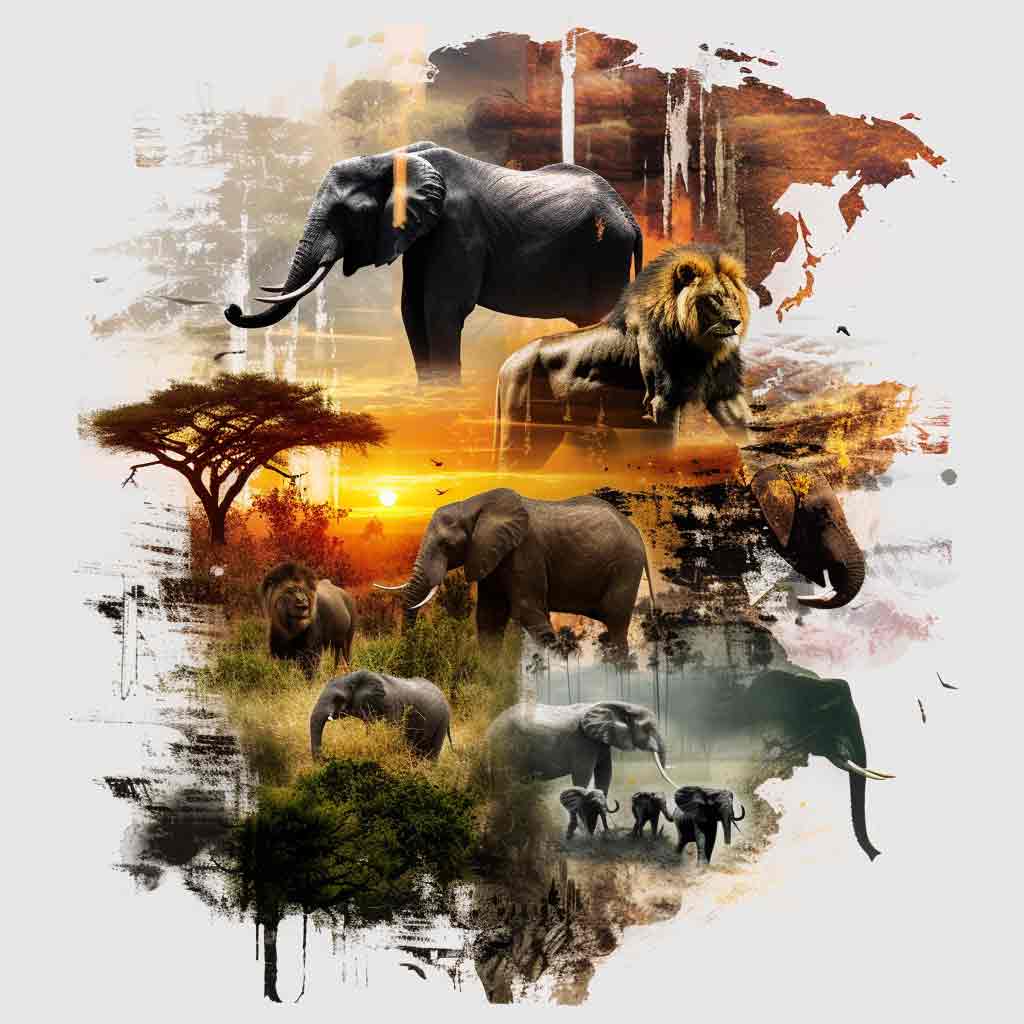
The incredible bird species found only in Africa
Africa’s avian population is as diverse as its land mammals. The continent is home to an incredible array of bird species, many of which are found nowhere else in the world. From the vibrant plumage of the Lilac-breasted Roller to the impressive hunting skills of the African Fish Eagle, these birds add to Africa’s rich biodiversity.
Conservation efforts to protect Africa’s endangered wildlife
Conservation in Africa is a critical and ongoing effort, addressing habitat loss, poaching, and climate change threats. Initiatives range from community-driven conservation projects to international collaborations. Protecting Africa’s wildlife is not just about preserving species; it’s about maintaining the ecological balance and supporting sustainable livelihoods.
What are the significant economic and developmental facts about Africa?
Africa’s transformation: An economic overview
Africa’s economic landscape is transforming rapidly, marked by increasing diversification and growth. The continent is home to some of the world’s fastest-growing economies, driven by sectors like technology, agriculture, and services. This growth and a burgeoning young population position Africa as a significant player in the global economy.

Africa’s strides in education and technology
In education and technology, Africa is making significant strides. Increasing access to education and the rise of digital technology fuel innovation and entrepreneurship. Tech hubs across the continent, from Nairobi to Lagos, are nurturing a new generation of tech-savvy entrepreneurs, reshaping Africa’s future.
Agriculture in Africa: Feeding a billion people
Agriculture remains a cornerstone of Africa’s economy, employing many people. The sector faces challenges from climate change and resource constraints but also holds immense potential. Sustainable farming and agrotechnology innovations are essential for food security and economic development.
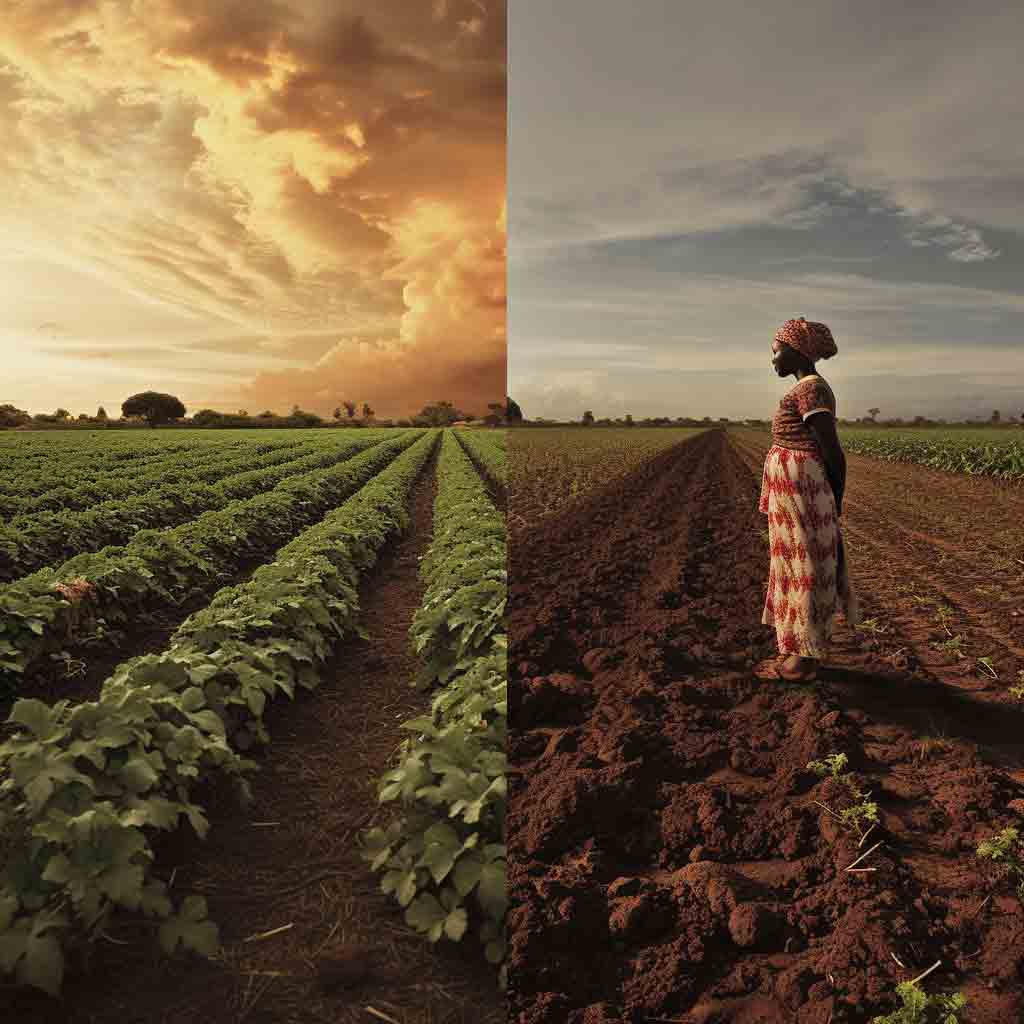
Economic prospects: Some of the fastest-growing economies in Africa
Countries like Ethiopia, Rwanda, and Ghana are among the fastest-growing economies in Africa. These nations exemplify how policy reforms, investment in infrastructure, and focus on crucial sectors can spur economic growth. Their successes provide valuable lessons for other African countries.
Tourism in Africa: An essential economic sector
Tourism is a vital economic sector, showcasing Africa’s rich cultural heritage and natural beauty. From the pyramids of Egypt to the wildlife reserves of Kenya and Tanzania, tourism boosts the economy and fosters cultural exchange and understanding. Sustainable tourism practices are crucial for preserving these treasures for future generations.
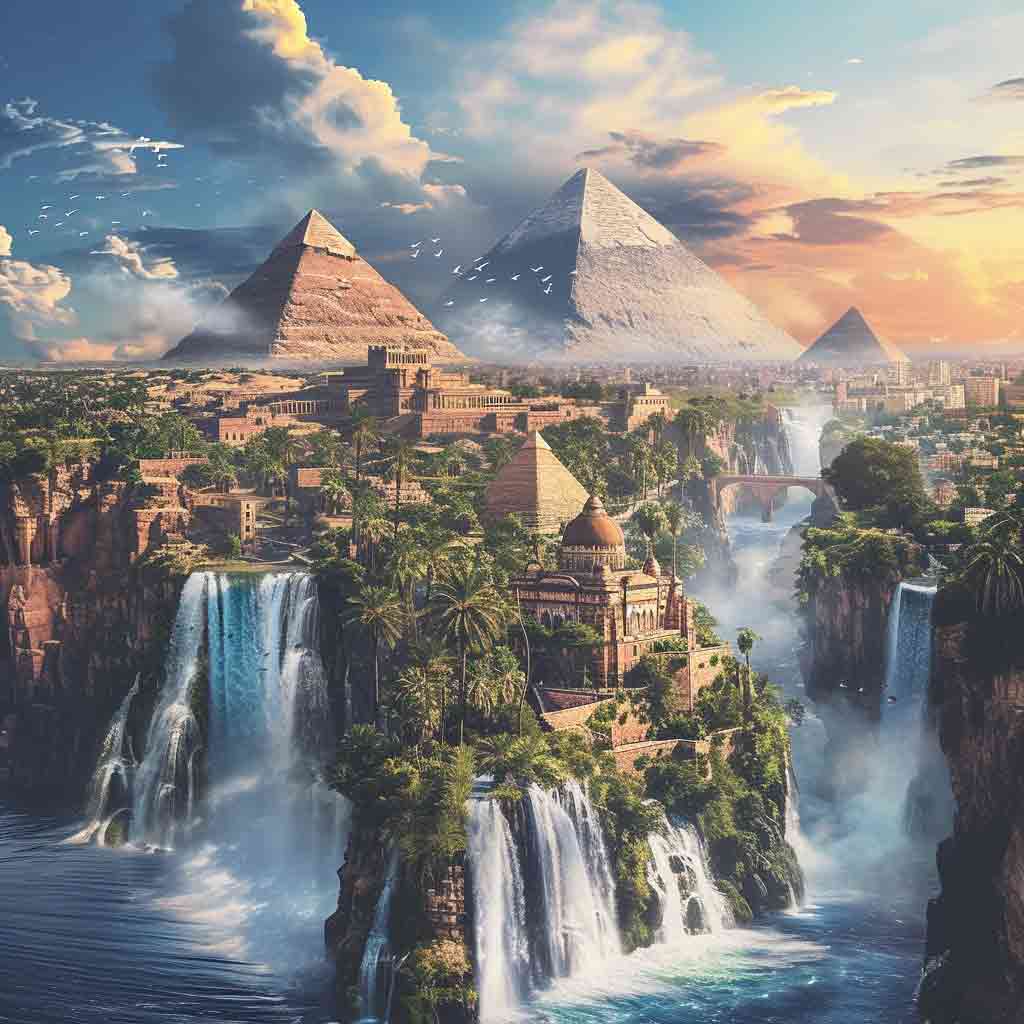
Conclusion
In conclusion, Africa is a continent of unparalleled diversity and beauty, a testament to our planet’s rich tapestry of cultures, landscapes, and histories. From its vast Sahara Desert to the lush Congo Rainforest, from the bustling cities of Nigeria to the tranquil islands of Seychelles, Africa offers a world of discovery and inspiration.
The continent’s rapid development, burgeoning youth population, and technological advancements promise a bright future for Africa and the global community. The resilience and vibrancy of its people, the richness of its cultures, and the diversity of its languages and traditions are invaluable assets in our interconnected world.
Africa’s wildlife and natural wonders remind us of our responsibility to protect and cherish our planet’s irreplaceable resources. The efforts to conserve its unique species and ecosystems are a beacon of hope for environmental sustainability worldwide.
As we reflect on these 40+ impressive facts about Africa, we are reminded of the continent’s significant role in shaping our past, present, and future. Africa is not just a land of endless opportunities and wonders; it is a vibrant, living reminder of our shared humanity and the boundless potential within each of us.
In embracing Africa’s lessons and legacies, we find inspiration to build a world that honours diversity, fosters innovation, and cherishes our collective heritage. Africa, with its depth, complexity, and spirit, continues to enlighten, challenge, and enchant us all.
FAQ
What are some interesting facts about Africa?
Africa is the second largest continent on earth, with 54 countries and approximately 1.2 billion people. Sub-Saharan Africa alone is home to more than 1,000 distinct languages. Africa is also highly biodiverse, with the largest population of lions, giraffes, ostriches and other animals found in Africa.
What is an interesting fact about South Africa?
One interesting fact about South Africa is that it has the largest economy of any African country. The country has progressed economically through agriculture and mining, contributing significantly to Africa’s development. The largest city, Johannesburg, is an economic powerhouse. Cape Town in South Africa is also one of the most visited destinations.
What is unique about Madagascar, a country in Africa?
Madagascar is unique because it is the fourth largest island in the world. It split from the Indian subcontinent around 88 million years ago, meaning many of its plants and animals are found in no other place on Earth. This makes Madagascar one of the world’s top biodiversity hotspots.
What is one unique fact about Ethiopia?
Ethiopia is the only African country that was never formally colonized, but Italy occupied it briefly. Its diverse culture is, therefore, highly intact and unique, with over 80 distinct ethnic groups and languages.
What is unique about the Seychelles?
The Seychelles, an archipelago off the coast of Africa, boasts the smallest population of any African country. Despite its size, it has a high standard of living and is prosperous compared to many African countries.
Can you share an intriguing fact about the Central African Republic?
The Central African Republic is one of the least modernized countries in the world. It’s a landlocked country in Central Africa that relies heavily on subsistence agriculture for survival. Despite the hardship, it’s a linguistically diverse country with over 80 languages.
What is a noteworthy element about South Sudan?
South Sudan is noteworthy as it is the youngest country in the world, having gained independence from Sudan in 2011. However, civil conflict has consumed it for much of its brief existence.
Can you share a unique fact about São Tomé and Príncipe?
São Tomé and Príncipe, located on the western coast of Africa, is the smallest Portuguese-speaking country in the world. Portuguese explorers discovered it uninhabited in the 15th century, and subsequently, African slaves populated it.
What are the most commonly spoken languages in Africa?
Africa is incredibly linguistically diverse, with over 2000 recognized languages. The most commonly spoken languages include Arabic, English, Swahili, and French. Depending on the region, other African languages are also widely spoken.
What is a fantastic fact about the wildlife in Africa?
Africa is known for its wildlife. It is home to the world’s largest land animal, the African elephant. The continent also hosts the fastest land animal in the world, the cheetah. Additionally, Africa makes up a significant chunk of global biodiversity: the Central African jungle is the second largest rainforest in the world and is home to forest elephants and gorillas.
Read More Posts from our Journal
Unlock the Mysteries of the Africa Jungle
Embark on an epic journey through the Africa jungle, where the wonders of African wildlife and natural habitats await your discovery.
What Do Lions Eat? Discover Their Diet Here!
Uncover the eating habits and diet of lions. Explore what these majestic predators consume and their place in the food chain.
Group of Rhinos: What Are They Called?
Discover what a group of rhinos is called and learn fascinating facts about these majestic animals and their social structures.
Explore Diverse Antelope Types Across Continents
Discover the vast array of antelope types around the world, from the common to the rare, and learn about their unique habitats and behaviours.
Discover a Group of Giraffes: Nature’s Majestic Tower
Explore the enchanting dynamics of a group of giraffes and their unique social behaviours in the wild. Unveil the serenity of giraffe herds.
